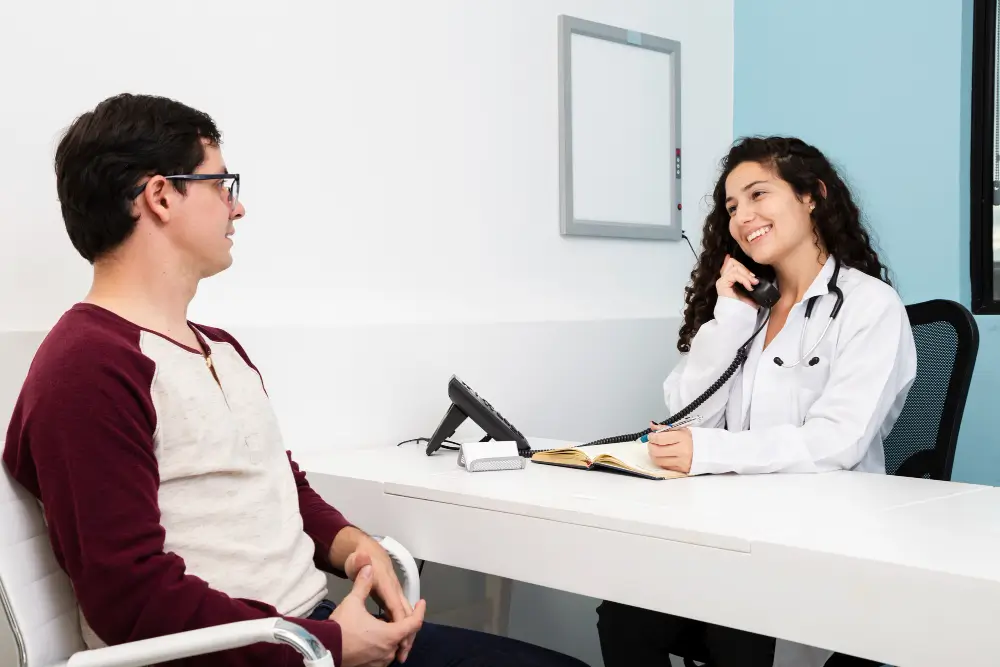Egg donation is an act of science and generosity that can change lives. For countless couples and individuals who are infertile, egg donors are hope, potential, and the ability to become a family. While far too much of what is said about egg donation centers on money, what an egg donor gives is so much greater than just economic gain.
In this blog post, we will discuss the underlying meaning of egg donation, qualifications, process, and answer the most commonly asked questions regarding egg donor compensation, i.e., what constitutes the highest egg donor compensation and how to donate eggs for cash in an ethical and safe way.
Understanding the Importance of Egg Donation
Helping Families Achieve Parenthood
Every year, thousands of women from all around the world face the pain of not being able to bear a child naturally. Medical conditions like premature ovarian failure, age-related decline in fertility, or genetic reasons make certain women unable to use their eggs. Egg donors step forward and fulfill this important void.
By donating their eggs, young women give the building blocks necessary to make parenthood possible for intended parents—heterosexual couples, same-sex couples, and singles. The gift can potentially give recipients lifelong happiness that has eluded them for years because of infertility.
Egg Donor Eligibility and Requirements
Who Can Become an Egg Donor?
The majority of egg donor programs apply stringent qualification factors to guarantee both the donor and child are healthy. Some of the most common factors for qualification include:
- Age: The Majority of clinics accept egg donors aged between 19 and 30 because fertility and egg quality must be at their best at this age.
- Good Health: Medical and mental health screenings are performed to ensure that the donor is healthy.
- Non-smoker/No drug use: Lifestyle has a significant contribution towards becoming qualified.
- BMI in the healthy range: Body Mass Index must generally be between 18 and 28.
- No hereditary disorders: The family history is screened to exclude hereditary disorders.
- Will undergo medical and psychological tests.
Donors must also be mature, responsible, and well aware of the process and its implications.
The Egg Donation Process: What to Expect
Step-by-Step Guide
- Application and Screening
Potential donors fill out a comprehensive application with follow-up physical, genetic, and psychological examinations.
- Matching with Intended Parents
After being accepted, donors and recipients are matched for physical characteristics, medical history, and personal preference.
- Medical Protocol
The donor initiates hormone injections to stimulate her ovaries to release multiple eggs. Regular monitoring is conducted to monitor progress.
- Egg Retrieval
An outpatient procedure that lasts a few minutes is done to collect the eggs under ultrasound guidance. It is only 20–30 minutes in duration.
- Post-Retrieval Recovery
Most of the donors recover to full activity in a few days. They are asked not to engage in heavy activities for a while.
Egg Donor Compensation: Beyond the Numbers
Why Are Donors Paid?
Donating eggs takes time, energy, and some sacrifice of physical and emotional resources. Compensation isn’t for the eggs themselves, which is morally and illegally wrong, but for the time, inconvenience, and willingness of the donor to be subjected to medical procedures.
What Is the Average Compensation?
Egg donor compensation is region-, clinic-, and donor-type-dependent. Average compensation is as follows:
- First-time donors earn between $5,000 and $7,000.
- Repeat donors or donors of a specific nature can receive as much as $10,000 or more and belong to the highest egg donor compensation brackets.
Factors for compensation are as below:
- Successful previous donations
- Increased levels of education
- Ethnic background
- Physical looks are in high demand
While money is a very tempting incentive, the majority of donors reported that the ability of someone to have a family was what motivated them the most.

Risks and Considerations for Egg Donors
Physical and Emotional Aspects
Egg donation is a medical process, and as with any medical process, there are a few risks that come with it, including:
- Mild discomfort or bloating during hormone stimulation
- Mood swings due to the hormonal fluctuations
- Rare complications of Ovarian Hyperstimulation Syndrome (OHSS)
Psychological implications can also be present, especially if the donor has not been prepared for what the genetic relationship entails. This is why psychological guidance is part of the process.
Long-Term Impact
Records thus far are showing no negative effects on fertility or overall health in healthy donors long-term. Donors are, however, recommended to go see medical providers and make sure they completely know the risks.
Ethical Considerations of Donating Eggs for Money
Finding the Right Motivation
Making sure that egg donation is voluntary and not forced is essential. Egg donor compensation programs must emphasize donor education, medical safeguards, and emotional preparedness.
Ethically conducted donor programs do not foster donation for money alone—rather, they supplement fair compensation with informed consent, counseling, and care following donation.
Support, Confidentiality, and Legal Aspects
Legal Protections for Donors
Donors usually sign a contractual agreement waiving parental responsibility and rights. Confidentiality is also maintained strictly, but in some circumstances, some leeway can be accommodated with a known donation or future connection with mutual consent.
Donors never take on any form of financial obligation to the child and never legally become a parent. Such agreements are required in order to ensure clarity and peace of mind for all concerned.
Why Being an Egg Donor Is an Empowering Choice
Changing Lives—Including Your Own
The experience, according to most donors, is liberating. They assist a needy family but also learn about their own reproductive health and usually acquire a new level of respect for the gift of life.
Others enter the process with a motivation of monetary compensation, but they end up with something of real value: knowing that they’ve altered another’s life forever.
Final Thoughts: More Than a Transaction
Donating eggs is an extremely intimate, life-changing experience. Egg donor compensation is hotly contested in the public sphere, but it is merely a single facet of a much larger process. For those who qualify and are prepared, egg donation can be a rewarding experience to enrich the life of another person and gain substantial personal understanding.
If you are looking for egg donation and would like to inquire about the process or the highest egg donor compensation, Indian Egg Donors has a safe, ethical, and compassionate environment. Being highly reputed and a company with integrity, Indian Egg Donors makes sure that every aspect of your process, from screening to payment, is carried out with utmost care and professionalism.
Frequently Asked Questions (FAQs)
Q. How much do egg donors typically get paid?
Ans : Egg donor compensation usually ranges from $5,000 to $10,000, varied by experience, history, and program requirements.
Q. Who qualifies for the highest egg donor compensation?
Ans : Donors in the 19–30 age group with specific education, ethnicity, or previous successful donation are eligible for the highest egg donor compensation because of high demand.
Q. Is it safe to donate eggs for money?
Ans : Yes, egg donation is medically safe when done through licensed clinics. Proper medical screening and hospital management guarantee donor protection.
Q. Can I donate eggs for money more than once?
Ans : Yes, many donors donate more than once, provided they are in good health and take adequate intervals between donations. All the clinics permit 6 donation cycles.
Q. Is the compensation considered taxable income?
Ans : Yes, in the majority of nations, including the United States, egg donor compensation is taxed as income. Obtain the advice of a tax professional for proper reporting.

Dr. Pooja Patel
Dr. Pooja Patel is a Chief Surrogacy Coordinator at Surrogacy4all. She has 10 years of experience in Anesthesiology and critical care medicine.
She received her medical degree from Seth GS Medical College and K.E.M Hospital in India. She then completed an internship. She finished her Anesthesia residency at Grant Govt Medical College and JJ Group of Hospitals in India.










